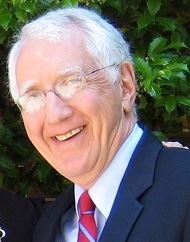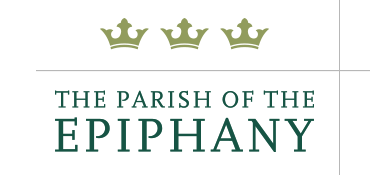 I am a member of the Board of Trustees of the American Friends of the Episcopal Diocese of Jerusalem (AFEDJ). AFEDJ raises funds in the United States to benefit schools and hospitals that are owned and operated by the Jerusalem Diocese. Every three years the Board travels to the Middle East to visit some of the schools and hospitals in several countries which we support. I joined the Board on this year’s trip in October and so I visited schools and hospitals in Jordan, the West Bank, Israel, and Gaza.
I am a member of the Board of Trustees of the American Friends of the Episcopal Diocese of Jerusalem (AFEDJ). AFEDJ raises funds in the United States to benefit schools and hospitals that are owned and operated by the Jerusalem Diocese. Every three years the Board travels to the Middle East to visit some of the schools and hospitals in several countries which we support. I joined the Board on this year’s trip in October and so I visited schools and hospitals in Jordan, the West Bank, Israel, and Gaza.
I had been to the Middle East before on an Epiphany pilgrimage. But there were to be few, if any, holy sites on this trip. This was all about people in need in today’s world. Before I left on the trip, I expected to see many sad things: a neglected people who are the victims of violence and political dysfunction, a lack of medical facilities and good education, and a lack of hope. I knew that the U.S. had just cut its aid to the Middle East and that that significantly affected two hospitals that we support. I guess I wondered where God is in all of this.
On the trip, I saw much of what I had expected to see: evident poverty, unemployed people, shortage of water, heavily armed checkpoints and border crossings throughout, and obvious discrimination. What I had not expected to see in such abundance is hope. One such encounter was at the Holy Land Institute for the Deaf, in Salt, Jordan. The Institute cares for 140 deaf or hard of hearing, mostly residential children, nine deaf/blind children, and 75 disabled children who visit daily from the nearby Syrian refugee camp. I was particularly struck by the painstaking efforts involved in teaching deaf/ blind children. The work, almost all of which requires one  teacher per student, primarily involves teaching hands-on sign language. To see a deaf/blind student smiling while learning is not something I will soon forget.
teacher per student, primarily involves teaching hands-on sign language. To see a deaf/blind student smiling while learning is not something I will soon forget.
Another such encounter was at Gaza’s Al Ahli Arab Hospital. The situation for people living in Gaza grows more desperate almost daily. The area is isolated by border restrictions that surround it, with a 44 percent unemployment rate and with 33 percent of children being undernourished or suffering from malnutrition. I was happy to learn that many of the children treated for malnutrition, when given an affordable, nutritious diet recommended by the hospital, regain full health. We saw one happy father blow a kiss to his child’s nutritionist. Gaza is predominately Muslim with 900 Christians living among a population of 2 million. The hospital serves 38,000 patients per year and survives largely on charitable contributions and government support. Recent reductions in U.S. aid have cut $40,000 per month from the hospital’s income. One particular aspect of the unfolding tragedy is that the hospital possesses equipment to perform mammograms but does not possess the equipment to perform radiation oncology. Such equipment exists nearby in Israel, but 40 percent of medical requests for travel to Israel are denied. While I was following the hospital director, she stopped in front of a woman sitting on a bench waiting to see a doctor. The patient pointed to me and said, in Arabic, “We desperately need medical access to Israel and only two people can make that happen: God and you.” God is in her heartfelt appeal and will be in whatever I do with that appeal.
Robie White





